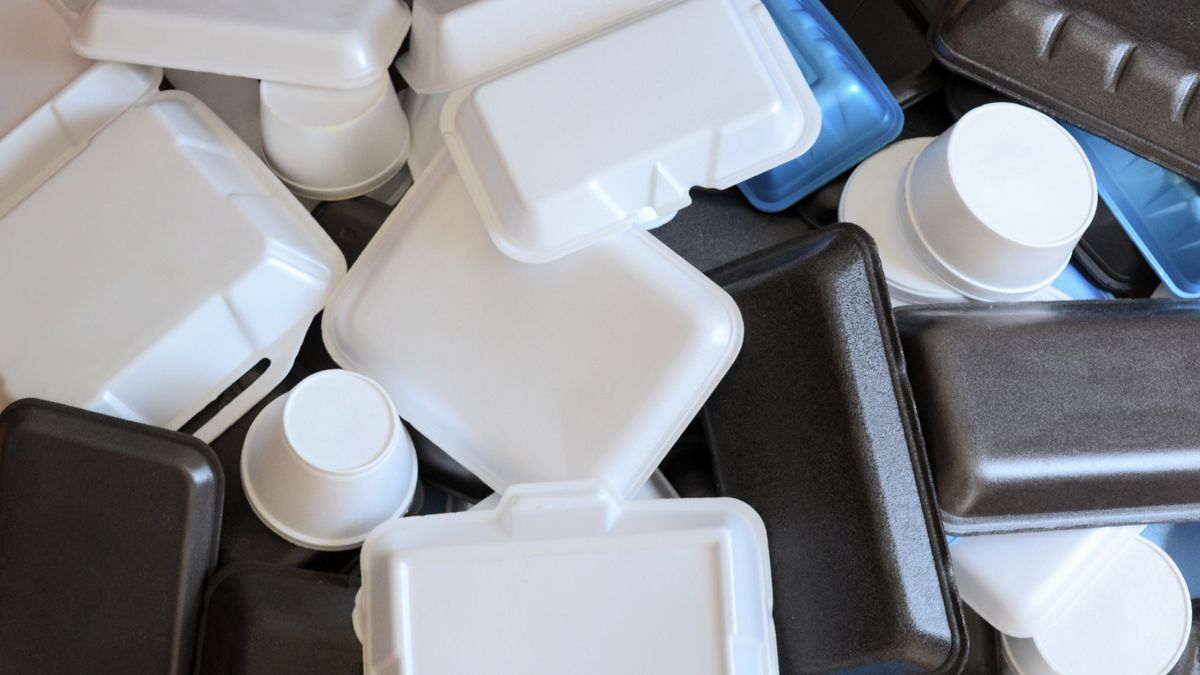
- U.S. Sen. Chris Van Hollen, D-Md., and Rep. Lloyd Doggett, D-Texas, introduced bicameral legislation last week that would phase out single-use plastic foam food service products nationwide come 2026. The bill also covers loose fill such as packing peanuts and non-medical disposable coolers.
- “This legislation, informed by successful state and local plastic foam bans, seeks a cleaner, more sustainable future for our entire country by saying farewell to foam,” Doggett said in a statement, calling plastic foam “a permanent polluter.”
- Throughout the U.S., 11 states have enacted their own foam bans. More than 250 cities and counties have passed restrictions on plastic foam, according to stats cited by Oceana.
The Farewell to Foam Act calls for no sale or distribution of covered expanded polystyrene products by food service providers, manufacturers, distributors or retailers starting Jan. 1, 2026. The legislation could carry monetary penalties for repeat offenders. The list of Senate Democrats cosponsoring it include Connecticut’s Richard Blumenthal, Massachusetts’ Ed Markey and Elizabeth Warren, and Oregon’s Jeff Merkley and Ron Wyden.
In 2019, Maine was the first state to approve a ban on polystyrene foam containers, which took effect in 2021. Delaware became the latest this year, along with Oregon and Rhode Island.
Van Hollen’s state of Maryland also passed a law in 2019. According to data shared by the Ocean Conservancy, plastic foam food ware items are among the top 10 most common single-use plastic items collected in the history of its international coastal cleanup. The amount of plastic foam food ware items collected since Maryland’s law took effect in October 2020 has fallen by 65%.
“In recent years, we’ve seen a wave of state and local municipalities take action and phase out plastic foam foodware, but piecemeal efforts are not enough to address the flood of single-use plastics polluting our environment,” said Anja Brandon, associate director of U.S. plastics policy at the Ocean Conservancy, said in a statement.
Christy Leavitt, campaign director at Oceana, echoed that in the wake of policy momentum at the local and state levels, “now is the time for a nationwide ban.”
“Nothing we use for several minutes should pollute our environment for decades to come,” said Janet Domenitz, executive director of MassPIRG, in an email. “We applaud the filing of the Farewell to Foam Act and look forward to a world with less single use plastic.”
The American Chemistry Council opposes the bill. “America doesn’t need this one-off, band-aid approach at the expense of an incredibly useful material,” said Ross Eisenberg, president of America’s Plastic Makers, in a statement from ACC. The group says it continues to advocate for solutions that support recycling and require recycled content in packaging.
Some packaging companies have voluntarily moved away from the material. The Cup Noodles single-serve foam container will be replaced by a fiber cup, Nissin Foods USA announced this fall.
Plastics-related bill reintroductions in Congress this year have included the Break Free From Plastic Pollution Act and the Rewarding Efforts to Decrease Unrecycled Contaminants in Ecosystems (REDUCE) Act. The former seeks to establish national-level programs for deposit return and extended producer responsibility; it would also eventually ban polystyrene foam food service products. The latter seeks to levy an excise tax on virgin plastics used to make single-use products like packaging.






